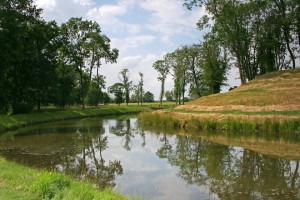Your Basic Guide to Ground Water
Most people have heard the term “ground water,” especially from watching nature documentaries or environmental reports. Unfortunately, many of us remain uncertain about what exactly ground water is and why it is important to our overall ecology. This basic guide aims to provide you with all the information needed so you can recognize the importance of protected ground water and ensure that your home is safe from contamination.
Ground water is the term used for water found beneath the surface of the earth. If you could look into the ground under your feet, you would see a layered structure. While we are aware of the top layer of dirt covering the earth, as we dig deeper we would see layers of rock. While this rock is often solid, inside each of these layers, there are small cracks and spaces which are filled with water. Ground water travels slowly under the surface of the earth between each of these small spaces.
The Importance of Ground Water:
Ground water is considered to be an important water source for the planet. In the United States alone, we use approximately 77,500 million gallons of this ground water every day for food production, watering crops, washing clothes and even drinking water. Approximately, half of the population of the United States relies on ground water as their source of drinking water.
Is Ground Water Clean?
The quality of ground water can depend on a number of factors. Some states have reported that their ground water quality is good overall, but some states have suffered from polluted ground water. Commonly cited pollutants include nitrates and manufactured compounds such as gasoline.
There have been a number of reports of gasoline and fuel contamination, as well as from hydraulic fracturing (fracking) which have often been caused by leaks in buried storage tanks such as you would find at gas stations or even in backyards to store oil for winter heating systems. Other potential sources of pollution are leaky landfills and leaks in septic systems. The pollution of ground water can also be traced to above ground incidents. For example, if a man made pond used to treat wastewater has not been properly installed or maintained, it has the potential to leak polluted water down into the ground. Additionally, spilled chemicals, agricultural runoff and nutrients or bacteria from livestock areas can also seep into the ground water.
Unfortunately, the impact of small leaks slowly allowing pollutants to spread over a large area means that tracing and controlling potential pollution sources can be very difficult.
Can You Protect Your Ground Water?
The best way to protect your ground water is to become well informed. The EPA has a number of comprehensive resources regarding drinking water sources and ground water. You will also need to assess whether your drinking water is sourced from ground water and how often it is tested. You will also need to consider the chemicals used in and around your home such as cleaning products and lawn chemicals which could pollute your ground water if it is improperly disposed of. Once you have assessed these risks, you may wish to switch to more environmentally friendly products and make more conscious choices about dealing with any chemicals in and around your property.
About The Author:
Greg Scott is President of Valparaiso based Miracle/EcoWater Systems, the premier water conditioning company in Northwest Indiana serving the Lake, Porter and LaPorte County areas. A 3rd generation water treatment professional, Greg grew up in the family owned business started by his grandfather in the late fifties. He has made water treatment his life and under his direction and high-standards, the company’s water treatment experience, knowledge, and products are unrivaled in region.
Back to

